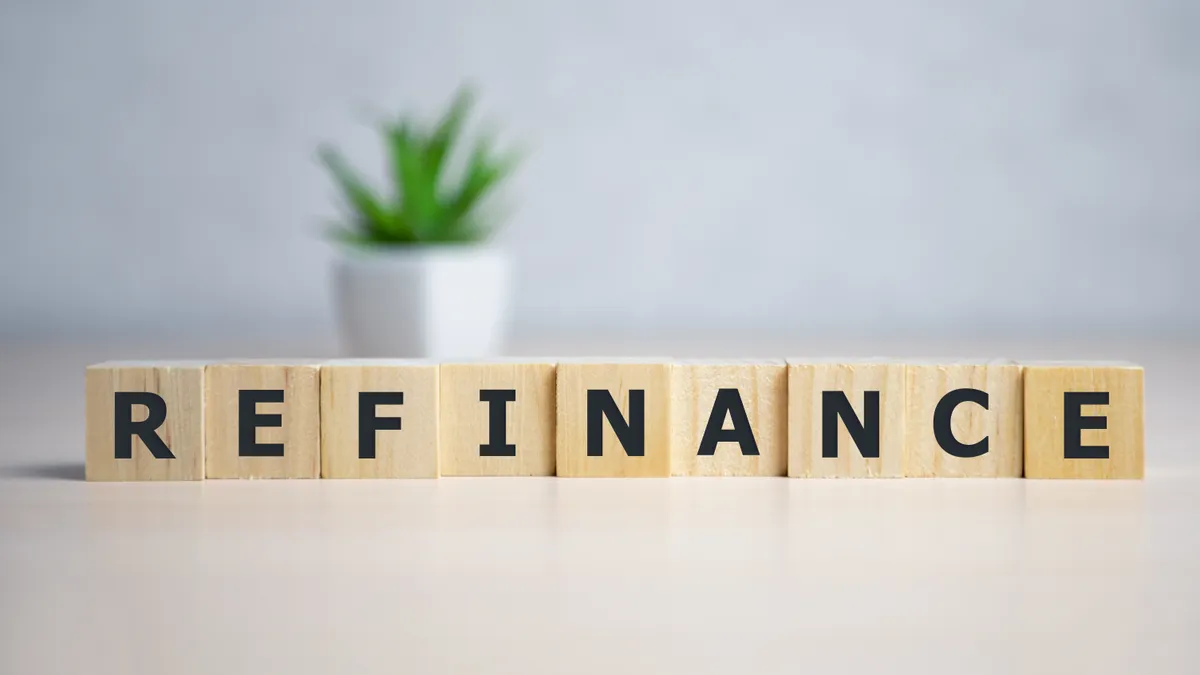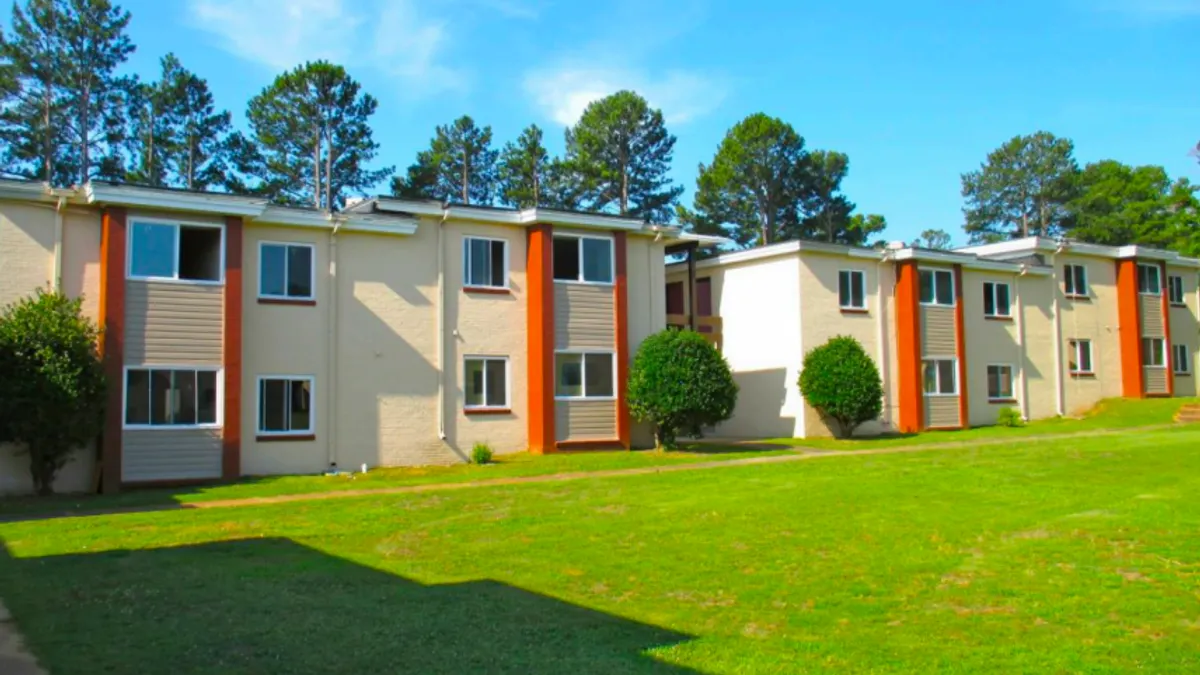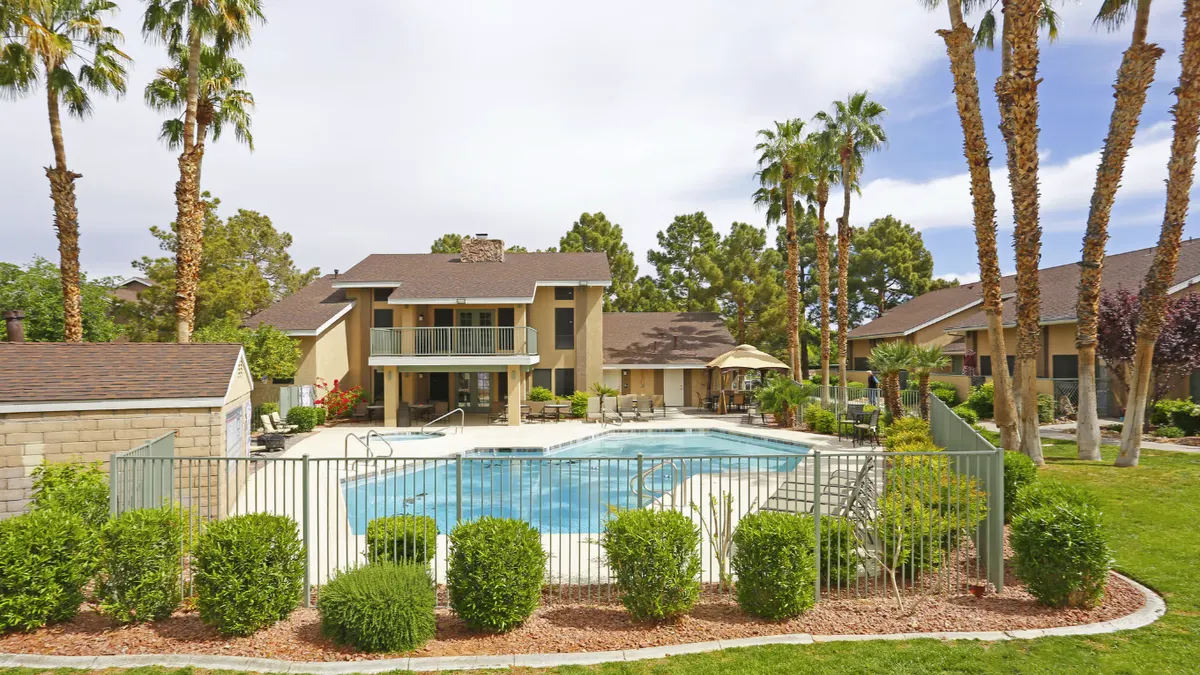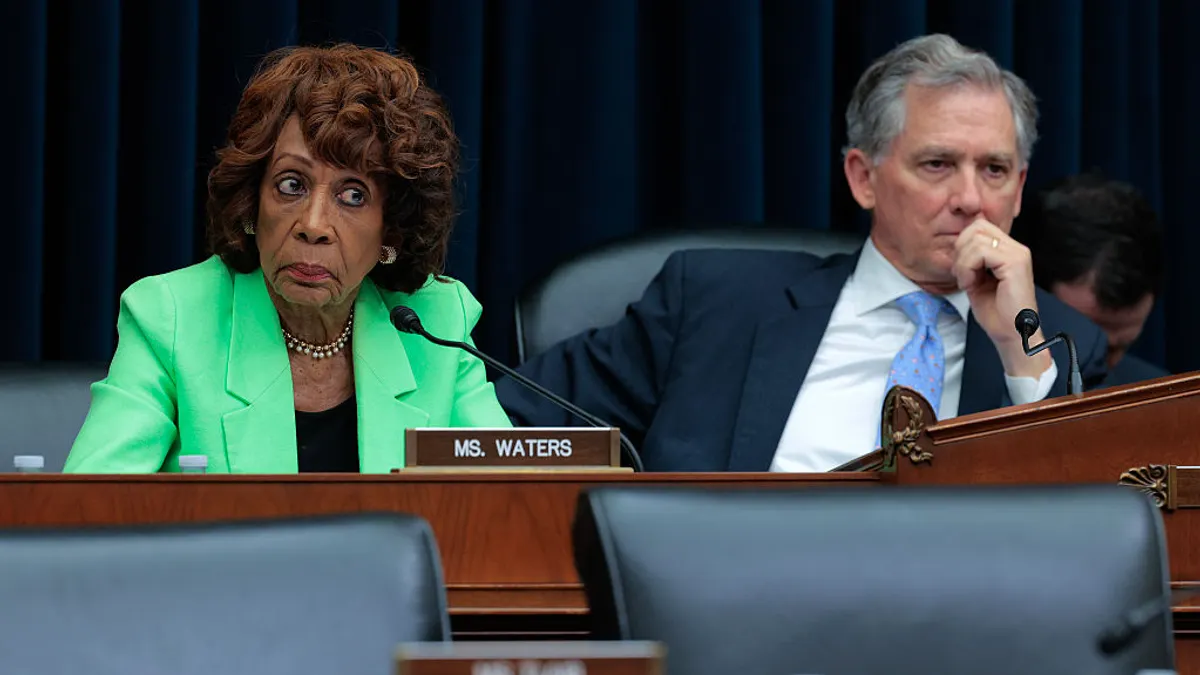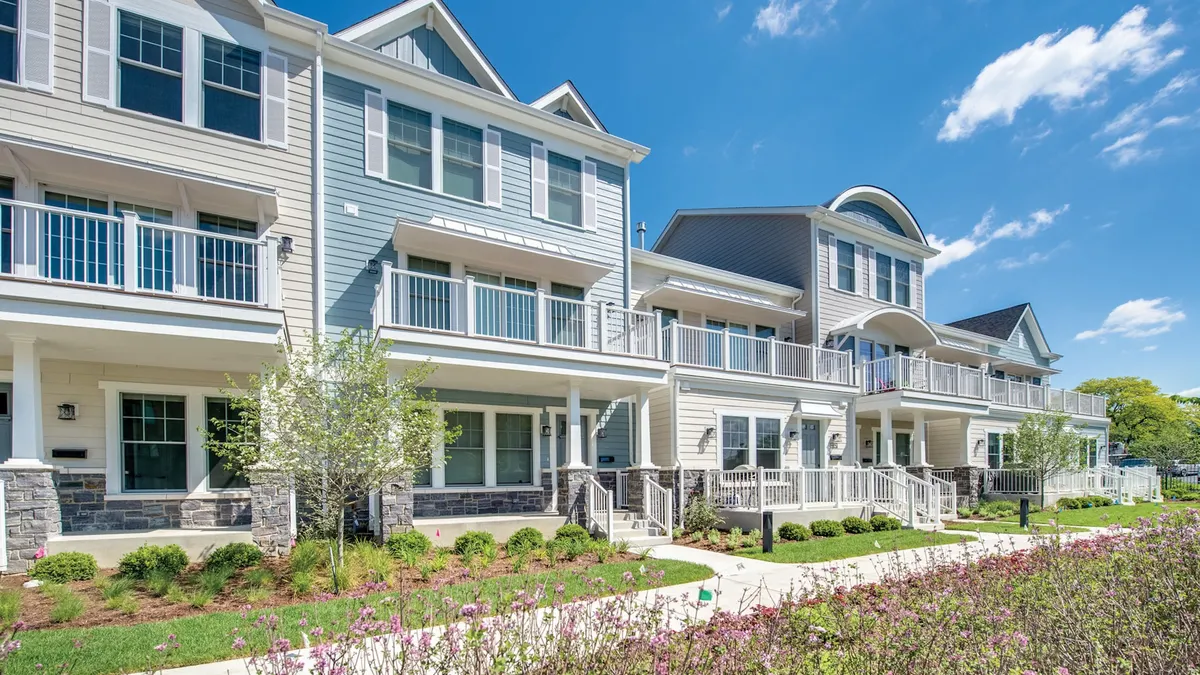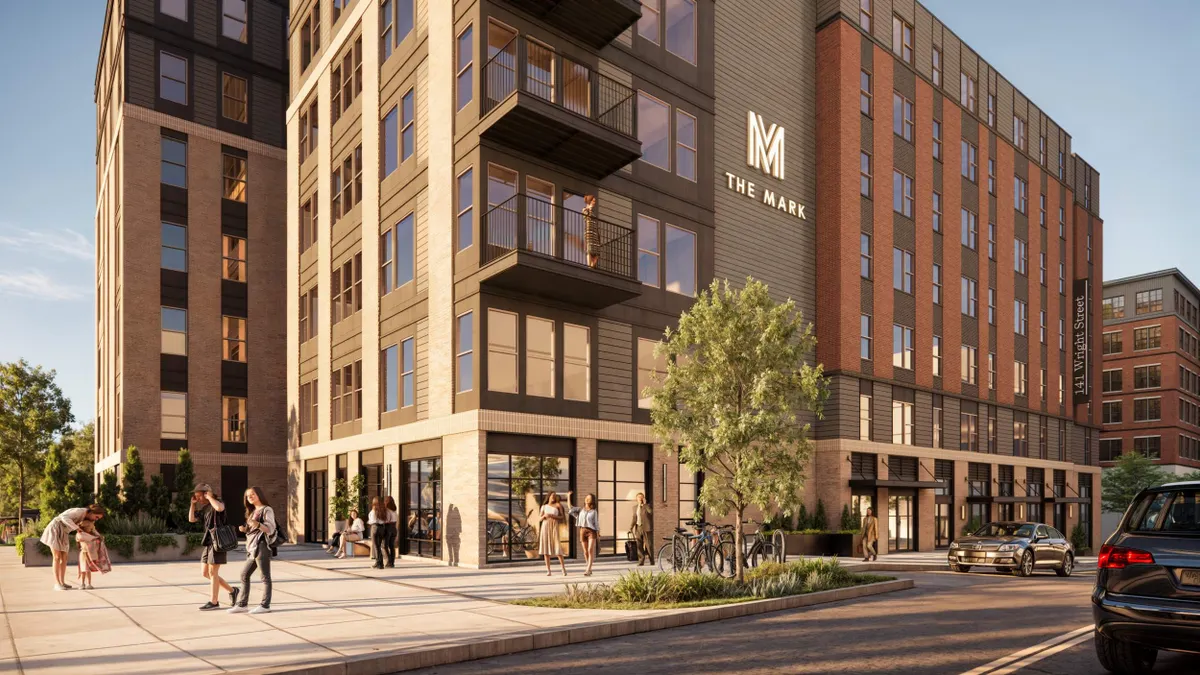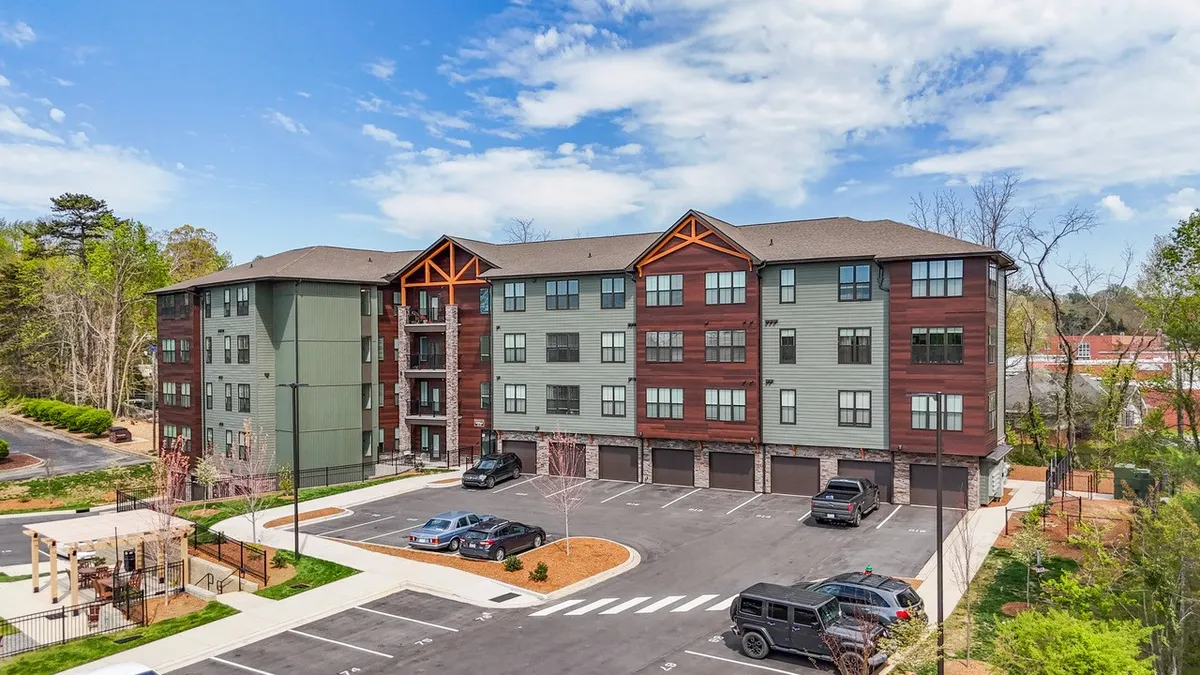This story is the fourth in a series looking at the effect of rising interest rates on the U.S. multifamily sector. Click here for the third article.
In the last two years, competing for apartment properties hasn’t been for the light-hearted. Buyers often had to battle 40 to 50 other groups to secure an asset. Even if they came out ahead, they needed to, in some cases, throw caution to the wind and agree to a price they would have thought unimaginable just a few years before.
In the coming years, however, these buyers — especially the ones that used floating-rate debt — could face a new challenge: refinancing the properties they fought to secure just a year or two ago.
There is no question that owners who bought aggressively could face issues if interest rates continue to climb and values ultimately fall. But there is a wide variety of opinions about what those issues will be.
Some see potential doom-and-gloom scenarios with keys being handed to banks and properties sold at distressed prices. But others see strong apartment fundamentals, a wave of debt capital and banks willing to work with borrowers to limit the damage.
“I don't see it as a likely situation where the keys would be returned,” said Patrick McGlohn, senior managing director of Berkadia’s D.C. Metro office. “If it's a syndicated equity group, maybe some investors get watered down if the GP [general partner] has to cover capital calls. But, at the end of the day, you could sell the property too.”
Payment coming due
Over the past two years, apartment properties hit prices never seen before, fueled by huge demand and minuscule interest rates.
“People paid big numbers on value-add deals and they were underwriting aggressively,” said Max Sharkansky, managing partner at Trion Properties, a multifamily investment sponsor and private equity real estate firm based in West Hollywood, California and Miami, Florida.
The buyers who paid a premium for those properties with high-leverage, floating-rate debt on bridge loans may soon face challenges though.
“For folks who have been buying multifamily at 3% caps, refinancing their debt in three years in a rising interest rate environment is going to be more difficult,” said Daniel Jacobs, partner and head of credit at New York-based ACRE, an institutional fund manager that invests in multifamily as an owner and a debt provider. “There are a lot of owner-operators out there who were pushing leverage on floating rate bridge debt that are going to have some issues down the line.”

George Goyal, a founding partner at Houston-based Three Pillars Capital Group, which specializes in Class B and C multifamily communities, says he’s hearing stories about companies struggling because of interest rates on their variable-interest-rate loans. “Their debt-service payments are going to ramp up and they need to replace that with incoming cash flow,” he said.
If they can’t meet their debt-service payments or their loan is reaching maturity, these owners could suddenly face refinancing risk.
“Those who put high leverage on them are going to have a really hard time refinancing or selling at a profit,” Sharkansky said. “If you're putting 75% loan-to-cost bridge debt on something that you underwrote at 4.25% or 4.50% cap rate post-renovation and you're banking on the rent growth and interest rates to go to more than 6%, you're going to have a really hard time refinancing out of it.”
If values fall and rates rise, some see more dire scenarios. “If interest rates go up significantly from here, our personal opinion is that a lot of people are going to be in a position where they would have to give back a property,” Goyal said.
Lender conversations
For any troubled owners, the first call is usually to the lender. Most lenders would rather work with their borrowers than have to take property back. During the global financial crisis of 2008, many apartment owners worked out issues with banks rather than returning the property.
“We expect that there will be a group of distressed assets that people borrowed and assumed lower interest rates going forward,” said Aaron Cohen, chief operating officer for Woodland Hills, California-based apartment owner CGI+. “They will be trying to negotiate with their lenders to figure out a way to get extensions so they don’t face any foreclosure events.”

In some cases, borrowers may have discussions to lock in an interest rate cap. “If you have a property with a variable-interest-rate loan and you want to lock-in an interest rate today, you have to put cash in at the refi instead of pulling cash out, which is typically what you want to do,” Goyal said. “But owners want to put cash in to have some security that they’re locked in at an interest rate that they can live with.”
Costs (in basis points) increase for interest rate caps on 4-year terms
| Strike | Today | 6 months ago |
| 2% | 508.40 | 210.00 |
| 3% | 292.80 | 106.40 |
| 4% | 170.00 | 64.00 |
SOURCE: Chatham Financial
Interest rate caps have become a lot more expensive, according to McGlohn. “With many debt fund loans there aren’t replacement cap escrows in place so sponsors will have to purchase replacement caps, while in some cases facing cash flow sweeps caused by the rapid increase in SOFR, even if business plans are on track,” he said. “That's the one thing that jumps out to me that was unforeseen and could cause stress in certain situations. There is just going to be a little bit of a sticker shock when replacement caps are purchased.”
Refinance options
If there is anything real estate investors have learned over the past decade, it’s that there are waves of capital out there for apartments. Some observers see this money lining up to provide a lifeline for troubled owners … for a price.
Jacobs sees “medium-term opportunities” for lenders, like debt funds. “You're going to have refinancing opportunities where it's tough for people to get out of the floating leverage debt that they've taken over the last couple of years,” he said. “So you can probably get outsized returns or outsized coupons for providing that refinancing.”

Whether owners are buying rate caps or refinancing, they’re generally going to have to bring more money to the table. But coming up with that cash could be a problem. In many cases, it requires making a capital call to equity investors.
“A capital call is reputational suicide, but that's kind of where things are,” Goyal said. And making a capital call beats having to give the property back.
Click here to sign up to receive multifamily and apartment news like this article in your inbox every weekday.


